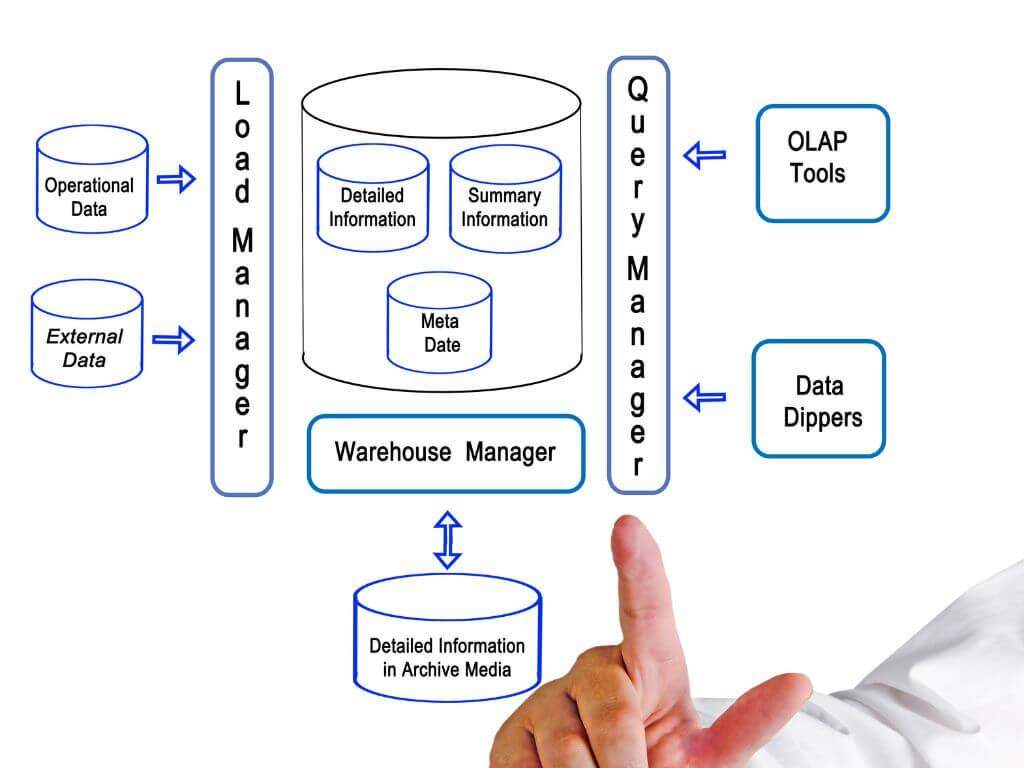Data Engineering Best Practices: Ensuring Efficiency and Accuracy
Data engineering is the process of designing, building, and maintaining the data infrastructure that enables data analysis, data science, and machine learning. Data engineering involves collecting, storing, processing, transforming, and delivering data from various sources and formats to various destinations and applications. Data engineering is essential for creating reliable, scalable, and secure data pipelines that can support data-driven decision making and innovation.
However, data engineering is not a simple or straightforward task. It requires a lot of skills, knowledge, and experience to perform effectively and efficiently. Data engineering also involves a lot of challenges and risks, such as data quality issues, data integration problems, data security breaches, and data governance compliance. Therefore, it is important for data engineers to follow some best practices that can help them ensure efficiency and accuracy in their work.
Fundamentals of Data Engineering
Data engineering is a broad field that encompasses the collection, storage, transformation, and analysis of data. Data engineers play a critical role in the data lifecycle, ensuring that data is managed efficiently and effectively. They use a variety of tools and technologies to perform their tasks, such as databases, data warehouses, data lakes, data pipelines, machine learning frameworks, and data visualization tools.
Data engineering has many benefits for businesses. It can help to increase efficiency by automating tasks and improving decision-making. It can also help businesses to gain valuable insights from their data, which can lead to better decision-making and improved profitability. Additionally, data engineering can help to reduce risk by ensuring data security and compliance with regulations.
There are a few things that individuals can do to prepare for a career in data engineering. First, it is important to learn the fundamentals of data engineering, such as data modeling, data warehousing, and data mining. This can be done through online resources, libraries, or bootcamps.
Second, it is important to gain hands-on experience. This can be done by working on open source projects or volunteering for nonprofit organizations. Third, it is important to network with other data engineers. This can help you to learn from experienced professionals and stay up-to-date on industry trends. Finally, it is important to obtain certifications. This can demonstrate your expertise and make you more marketable to employers.
Before diving into the tips and tricks for effective data engineering, it is important to understand the fundamentals of data engineering. Data engineering consists of four main components: data sources, data storage, data processing, and data delivery.
- Data sources: These are the origins of the data that need to be collected and ingested into the data infrastructure. Data sources can be internal or external, structured or unstructured, batch or streaming, and so on. Examples of data sources are databases, files, APIs, web pages, sensors, logs, etc.
- Data storage: These are the destinations where the data are stored and organized for further processing and analysis. Data storage can be relational or non-relational, on-premise or cloud-based, distributed or centralized, and so on. Examples of data storage are SQL databases, NoSQL databases, data warehouses, data lakes, etc.
- Data processing: These are the operations that are performed on the data to transform them into a desired format and structure for analysis and consumption. Data processing can be batch or real-time, ETL (extract-transform-load) or ELT (extract-load-transform), declarative or imperative, and so on. Examples of data processing are SQL queries, Python scripts, Spark jobs, etc.
- Data delivery: These are the methods that are used to deliver the processed data to the end users or applications that need them for analysis and consumption. Data delivery can be synchronous or asynchronous, push or pull, RESTful or RPC (remote procedure call), and so on. Examples of data delivery are APIs, dashboards, reports, etc.

Tips for Effective Data Engineering
Data engineering is a complex and dynamic process that requires a lot of planning, testing, monitoring, and optimization. Here are some tips that can help data engineers perform their tasks more effectively and efficiently:
- Define clear and specific requirements: Before starting any data engineering project, it is important to define the scope, objectives, expectations, and deliverables of the project. This can help avoid ambiguity, confusion, and miscommunication among the stakeholders and ensure alignment with the business goals and needs.
- Choose the right tools and technologies: Data engineering involves a lot of tools and technologies that can help with different aspects of the process. However, not all tools and technologies are suitable for every situation or scenario. Therefore, it is important to choose the right tools and technologies that match the requirements, constraints, and preferences of the project.
- Design scalable and modular architectures: Data engineering projects often involve large volumes and varieties of data that need to be processed and delivered in a timely manner. Therefore, it is important to design scalable and modular architectures that can handle the increasing demand and complexity of the data without compromising performance or quality.
- Implement clean data management: Data quality is one of the most critical factors that affect the success or failure of any data engineering project. Therefore, it is important to implement clean data management practices that can ensure the accuracy, completeness, consistency, validity, and timeliness of the data throughout the process.
- Apply data integration techniques: Data integration is the process of combining data from different sources and formats into a unified view or representation. Data integration can help improve the usability, relevance, and value of the data for analysis and consumption.
- Follow coding standards and best practices: Coding is an essential part of any data engineering project. Therefore, it is important to follow coding standards and best practices that can help improve the readability, maintainability, reusability, and reliability of the code.
- Document everything: Documentation is an important aspect of any data engineering project. It can help communicate the purpose, functionality, and logic of the project to other stakeholders and users. It can also help troubleshoot and debug any issues or errors that may arise during or after the project.
- Test everything: Testing is another important aspect of any data engineering project. It can help verify the correctness, quality, and performance of the project and ensure that it meets the requirements and expectations of the stakeholders and users.
- Monitor everything: Monitoring is the process of observing and measuring the behavior and performance of the data engineering project. Monitoring can help identify and resolve any issues or problems that may affect the functionality, quality, or efficiency of the project.
- Optimize everything: Optimization is the process of improving the performance and efficiency of the data engineering project. Optimization can help reduce the cost, time, and resources that are required to run the project.

Mistakes to Avoid in Data Engineering
Data engineering is not a perfect or error-free process. It involves a lot of challenges and risks that can lead to mistakes and failures. Here are some common mistakes that data engineers should avoid in their work:
- Not understanding the business problem: Data engineering is not just about collecting and processing data. It is also about solving a business problem or creating a business value. Therefore, data engineers should not start any data engineering project without understanding the business problem, context, and goals that they are trying to address.
- Not validating the data sources: Data sources are the foundations of any data engineering project. Therefore, data engineers should not assume that the data sources are reliable, accurate, or complete. They should always validate the data sources before ingesting them into the data infrastructure and check for any issues or anomalies that may affect the quality or usability of the data.
- Not handling errors and exceptions: Errors and exceptions are inevitable in any data engineering project. Therefore, data engineers should not ignore or overlook them. They should always handle errors and exceptions properly and gracefully, using techniques such as logging, alerting, retrying, skipping, or failing.
- Not securing the data: Data security is one of the most important and sensitive aspects of any data engineering project. Therefore, data engineers should not neglect or compromise the security of the data. They should always protect the data from unauthorized access or loss, using techniques such as encryption, authentication, authorization, auditing, and backup.
- Not documenting or testing the code: Code is an integral part of any data engineering project. Therefore, data engineers should not write or deploy code without documenting or testing it. They should always document and test their code to ensure its readability, maintainability, reusability, and reliability.
Data engineering is the process of collecting, storing, processing, transforming, and delivering data from various sources and formats to various destinations and applications. It is a vital process that enables data analysis, data science, and machine learning. Data engineers play a critical role in the data lifecycle, ensuring that data is managed efficiently and effectively.
Data engineering is a challenging field, but it is also a very rewarding one. Data engineers have the opportunity to work on cutting-edge projects that can have a real impact on the world, and given this constantly field, your company needs to be up to date on developments. Reach out to Zeren Software and consult a team of experts with seniority and cross-sectoral insight, in order to understand your data engineering needs.








